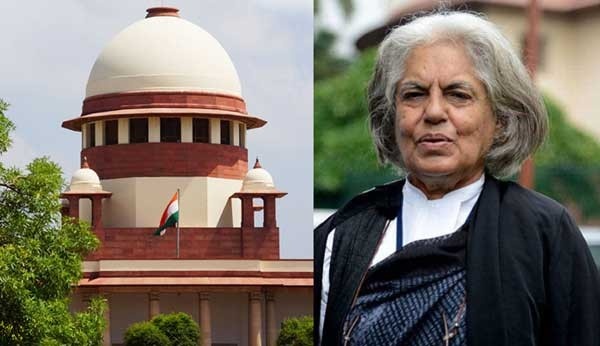New Delhi: The Supreme Court on Tuesday reserved its order on a plea of senior advocate Indira Jaising seeking expunction of certain adverse remarks against her in its verdict dismissing a clutch of petitions seeking an independent probe into the death of CBI special judge B H Loya.
On April 19 ,the apex court, had dismissed several pleas on the Loya matter and ruled that the judge, who was hearing the high-profile Sohrabuddin Sheikh fake encounter case, had died of “natural causes” in Nagpur on December 1, 2014 when he had gone to attend the wedding of a colleague’s daughter.
The court had also made some adverse remarks against the lawyers including Jaising who had represented the parties seeking independent probe in the case.
A bench of Chief Justice Dipak Misra and Justices A M Khanwilkar and D Y Chandrachud reserved the order after hearing arguments from senior advocates Abhishek Manu Singhvi, who represented Jaising, and Mukul Rohatgi, the counsel for Maharashtra.
Singhvi told the court that Jaising did not harbour “the slightest intention to be disrespectful or cause hurt or insult” which may amount to scandalising or lowering the dignity of the apex court and the judiciary of the country at large.
If she had committed contempt, the best course would have been to issue her a notice to which she would have replied, he said, adding that the adverse remarks in the judgement would remain there for times to come.
Referring to the judgement’s part regarding the conduct of the “counsel for the petitioners and intervenors”, Singhvi said “the counsel for the intervenor stands on a different footing from the others. She (Jaising) has only vigorously argued the proposition as instructed by the client.”
“What she (Jaising) had argued was that judge Utpat (to whom the said trial was assigned before his replacement by judge Loya) could not have been transferred on account of the language used in the Supreme Court’s (earlier) order.T hat was her perception of the law. That perception could be wrong, but she felt that the order of this court had been violated. This was the only point she had argued,” Singhvi said.
Rohatgi opposed the submission, saying “You were not here! How can you say this was the only point?” “My client is an advocate of 55 years’ standing at the bar. She has been associated with NGOs and several non-commercial objectives. No purpose is served by retaining these adverse remarks on the permanent record.,” Singhvi said.
Rohatgi said that all factual claims made by the applicant were wrong and that one of the prayers in the present application was an “attempt to revive the controversy”.













